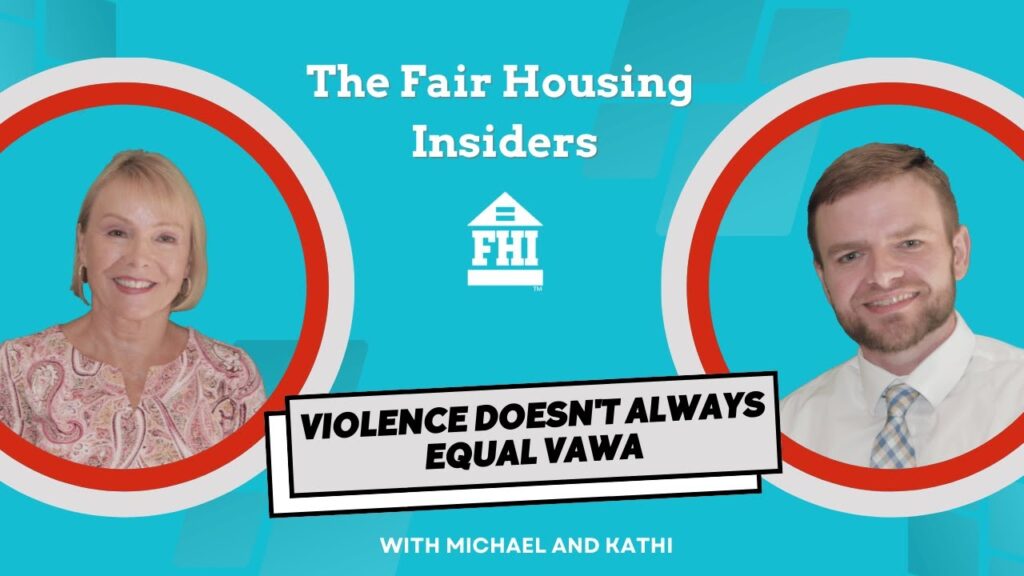In property management, navigating the complexities of fair housing laws is crucial, especially when it comes to sensitive issues like the Violence Against Women Act (VAWA). While VAWA offers critical protections for victims of domestic violence, dating violence, sexual assault, and stalking, it does not universally apply to all housing. This article explores the key factors that determine when VAWA protections come into play.

What Is VAWA?
The Violence Against Women Act is a federal law designed to protect individuals who experience violence, ensuring they are not unfairly evicted or denied housing due to their victim status. Importantly, VAWA applies primarily to federally funded housing programs. These include:
- Housing authority properties
- Section 8 properties (both project-based and tenant-based)
- Tax credit housing
However, conventional housing without federal funding is not subject to VAWA protections. This distinction is crucial for property managers when determining how to proceed in cases involving violence.
Does VAWA Apply? Start with the Type of Housing
When evaluating whether VAWA applies to a specific situation, the type of housing involved is the first factor to consider. Federally funded housing, such as Section 8 or tax credit properties, must comply with VAWA requirements. On the other hand, properties operating without federal funding are not bound by VAWA, and standard lease agreements and local laws govern these cases.
Evaluating the Reason for Eviction
Once it’s clear that the housing falls under VAWA’s scope, the next step is to assess the reason for eviction. Not all situations involving violence automatically qualify for VAWA protections. Here are two potential scenarios:
- VAWA-Applicable Evictions: If the eviction is based on a violent altercation involving the resident, VAWA protections are likely to apply. In such cases, property managers must follow VAWA-specific procedures.
- Non-VAWA-Applicable Evictions: If the eviction stems from unrelated lease violations—such as repeated noise complaints, drug use, or other disruptive behaviors—VAWA protections do not apply. In these cases, property managers should proceed with standard eviction procedures while documenting the basis for the action thoroughly.
Why Understanding VAWA Matters
Misapplying or misunderstanding VAWA can lead to costly legal issues and damage to your reputation as a housing provider. Staying informed and compliant ensures that you protect both your residents and your business.
To stay ahead of potential challenges, property managers should prioritize fair housing education and training for their teams. Regularly reviewing real-life scenarios, like the one discussed here, can help clarify how laws like VAWA apply in day-to-day property management.
Final Thoughts
VAWA is a vital law designed to safeguard vulnerable individuals, but its protections are not universal. Property managers must carefully consider the type of housing and the specific circumstances of each case to determine when VAWA applies. By staying informed and prepared, you can better serve your residents while remaining compliant with fair housing regulations.
For more guidance on VAWA and other fair housing topics, keep following Fair Housing Insiders. Investing in education today helps prevent complications tomorrow. Happy training!
You Might Also Be Interested In:
- Preventing Staff Harassment in Property Management
- Fair Housing Liability: When Does Resident-on-Resident Harassment Trigger Management’s Duty to Act?
- Retaliation vs. Rule Enforcement: Navigating the Fair Housing Fine Line
- Top 3 Fair Housing Risks for Property Managers in 2026
- A Year of Upheaval: How 2025 Impacted Fair Housing Operations
